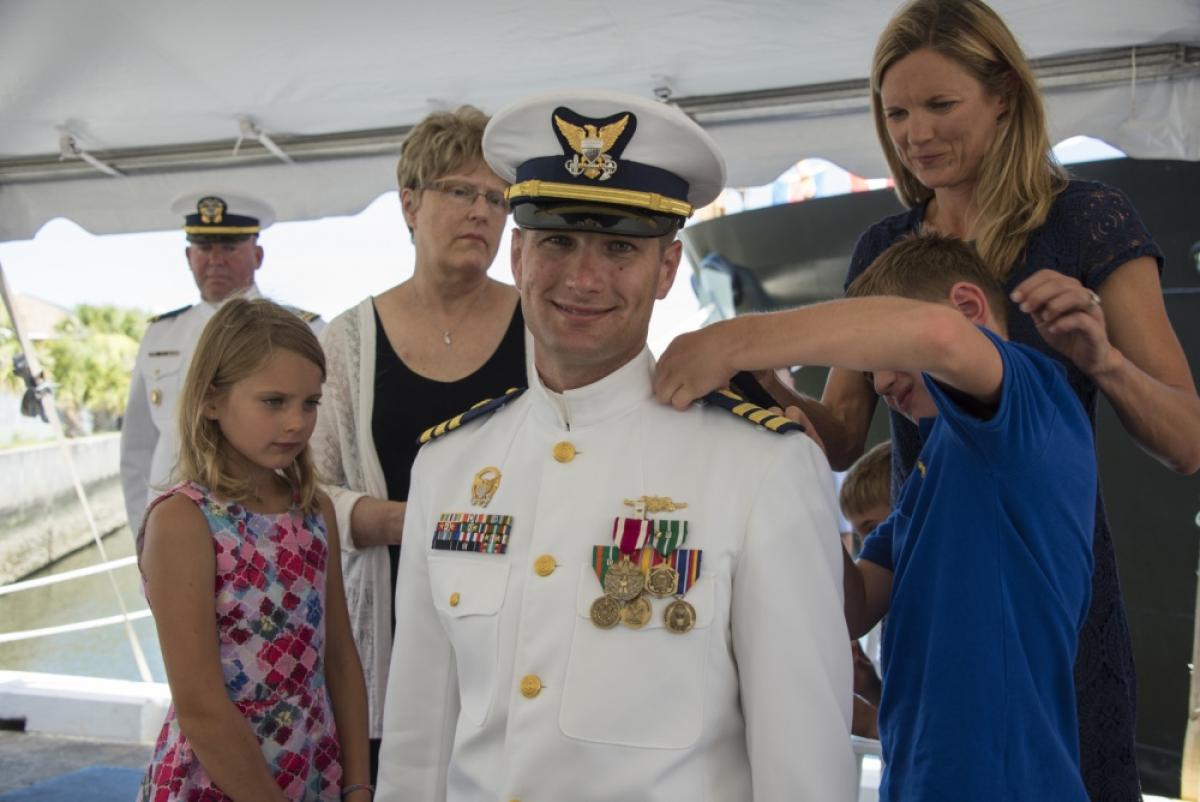Coast Guard officer evaluation reports (OERs) compare commissioned officers to an established standard, independent of any colleague at their unit or within their specialty. These evaluations assess traits, accomplishments, and behaviors through 18 performance dimensions using behaviorally anchored rating scales (BARS) with ranges of one to seven. The problem is that these performance dimensions are the same for every pay grade and do not accurately convey the varying levels of responsibility, technical expertise, and impact on the service that change with each pay grade.
The 18 dimensions also do not align with the Coast Guard’s 28 leadership competencies promulgated in Commandant’s Instruction M5351.3. In 2018, the Coast Guard revised enlisted evaluations into a gradient of performance standards specific to each pay grade, providing higher performance expectations after each advancement. It also aligned these evaluations with the Coast Guard’s Leadership Development Framework. Now it is time for the Coast Guard to do the same with OERs.
The Coast Guard found that enlisted performance standards did not optimally support enlisted members and the various human resource decisions that impacted their careers. This included advancements, assignments, high-year tenure/retention, and special screening panels. A work group was chartered to revise enlisted evaluations to make them: an effective expectations management tool for enlisted members, a better performance management tool for supervisors, and a better talent management tool for the organization. In addition to aligning with the 2006 Leadership Development Framework, the revised enlisted evaluations now provide improved data for human resources staff at Coast Guard Headquarters and commanding officers and officers-in-charge to make better personnel decisions. Lastly, the revisions reduced the evaluation process workload by streamlining unnecessary competencies, while maintaining the effectiveness and value of the evaluation.
Using a progressive scale of competencies, OERs should leverage the Coast Guard's 28 leadership competencies, which are grouped into four categories: Leading Self, Leading Others, Leading Performance and Change, and Leading the Coast Guard. Various dimensions could be added or replaced on each subsequent OER as a member increases in rank. This would better align with the mid-grade officer and civilian career transition course, senior leadership principles and skills course, and other training. Updated OER rating scales could serve as a clearer benchmark for officers who invest in their own professional development and look out on the horizon for what will be required of them at higher pay grades. Chapter 1 of Instruction M5351.3 best supports this argument with the following:
"Leadership is the ability to influence others to obtain their obedience, respect, confidence, and loyal cooperation. Good leadership develops through a never-ending process of self-study, education, training, experience, observation, and emulation. To assist members/employees in developing their leadership abilities, the Coast Guard has developed a leadership and professional development framework constructed around three components: (1) the Coast Guard’s twenty-eight leadership competencies, (2) the responsibility levels of members/employees, together with the expertise in each competency required at each level of responsibility, and (3) methods for gaining and demonstrating competency."
Starting with the O-1/O-2 OERs, the seven competencies under "Leading Self" plus two additional competencies from "Leading Others" should be sufficient. The number of competencies in higher pay grades from "Leading Others", Leading Performance and Change", and "Leading the Coast Guard" could be added on subsequent OERs. As you go higher in the organization, you would see less of the "Leading Self” competencies so that the total number of performance dimensions for each pay grade would remain optimal. However, by the time you reach O-6, your entire record would have captured your performance and growth across all 28 leadership competencies. The end result should be a clearer picture of the traits/growth needed to select future executive leaders. Along the way, this thoughtful approach to evaluations could better inform promotion boards, assignment officers, and supervisors.
The Coast Guard Authorization Act of 2018, Section 803(d), required the service to survey officers to determine the amount of time each member of the rating chain spends on the OER. The results of that study have not yet been made public, but they should inform any changes to officer evaluations. The Coast Guard has an opportunity and a need to adjust course on OERs. It could not have come at a better time—now.



